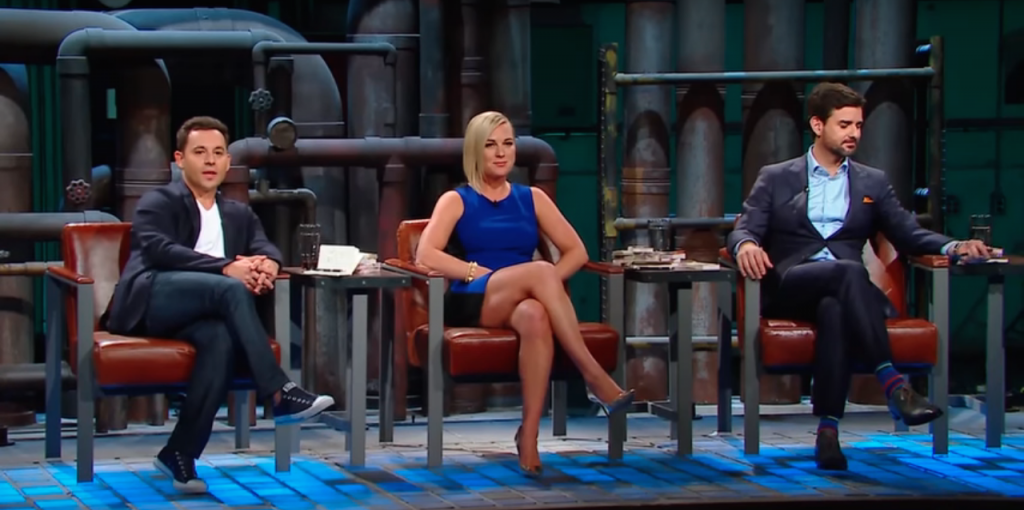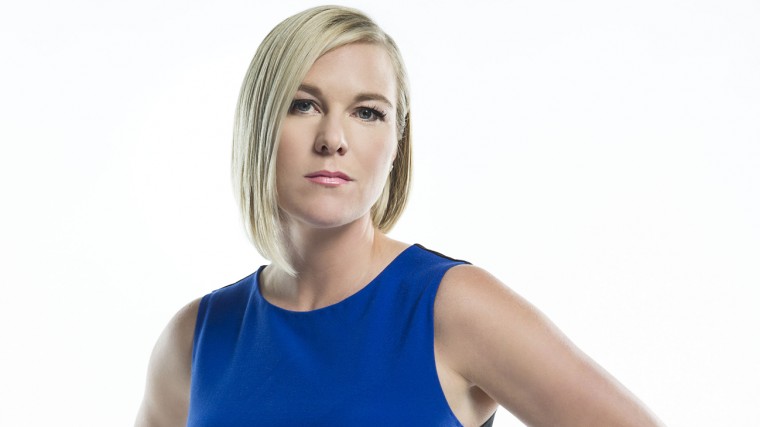As part of a regular series powered by Dell, BetaKit asks prominent entrepreneurs to share how technology has evolved since they first launched their business, before predicting where it will take them.
Nicole Verkindt is a two-time entrepreneur who has spent her career on the industrial side of tech, tackling manufacturing, aerospace, energy, and infrastructure. As CEO and founder of OMX (Offset Market Exchange), Verkindt helps major industrial players and government actors source high-quality suppliers from around the world and analyze their economic impact.
What technology were you using regularly at the beginning of your business?
I ran my first business, a construction materials and offshore manufacturing company called Tiburon off a BlackBerry in Canada and a pay-as-you-go flip phone in the Dominican Republic, where we had our operations.
This was 2007, so I did have a laptop and slow internet, but the crucial business elements were all done in person. I sent emails for orders, but team meetings, assessing product quality, and even sales required face-to-face interactions.
“The things I didn’t fail at in my first business showed up in my second.”
At that time, if you stood on the factory floor and asked for a product’s location, the team would point to the right shelf across the factory. We had no complex systems for inventory and people management. If someone didn’t show up to work, you went to their house to check in on them.
We had many hiccups, but it all worked out. We remained solely focused on execution, innovating the business model as compared to our competitors, but using simple technology.
I’d contrast this to my second company, OMX, which I founded in 2011. While we received our very first order via fax machine, we are now looking at a ton of technology for the company and operate tech-first.
What were some of the biggest struggles you had getting Tiburon and OMX off the ground in the early days?
I think the biggest struggle is that my first business was so ‘green field’. We moved quickly, and I had to learn Dominican Spanish and move to a new country and culture to run my business.

With the company being so execution-focused, it didn’t leave time for strategic thinking. I also had to deal with customs agents, which occasionally meant navigating corrupt government systems from the various countries we got supplies from and operated in.
As a new CEO, I leaned heavily on my team. Samsonite Luggage had just left the Dominican, so we acquired their equipment and most of the team, so they already knew each other and knew how to work together. I just provided guidance and worked on client relations and sourcing.
With OMX, on the other hand, the biggest struggle was that everything that had gone well at Tiburon became a problem at OMX.
I never learned the lesson of building great employee culture from Tiburon, for instance, because the team all knew each other and there was a great culture in place. When I founded OMX, I faced all the usual people and culture problems, but I didn’t know what to do at first.
Are there tools or support systems available now that you wish you’d had back then?
Thinking about those challenges I faced, Tiburon would have seen a lot of benefit from blockchain-based systems. For example, we sent samples to a supplier in China and he disappeared. We couldn’t track him down, and lost tens of thousands of dollars in materials. With blockchain-based tracking, that wouldn’t have happened.
Thinking back to OMX’s founding and early days, the biggest technology for us would have been inbound marketing technology.
“The future of work is a world where tech becomes almost like an employee.”
OMX’s business relies on changing people’s behaviours over long periods of time, which is nearly impossible to do at scale with only face-to-face meetings. High-quality inbound marketing technology would have helped us nurture leads and change behaviours over time, getting people ready to buy faster.
What about any advice you’d give to your past self?
Looking back, I’d tell myself that success happens but might take longer than you think.
One of my biggest weaknesses is my impatience. I would stress myself out wanting immediate results. They’d inevitably come, and I’m learning now that it takes day-in, day-out effort over long periods of time to really be successful.
However, I’d tell myself to notice that my weaknesses, when used properly, are also my strengths. The fact that I am impatient meant that I got work done quickly. It also got my team thinking more about getting things done.
As an entrepreneur, failure is your teacher. The things I didn’t fail at in my first business showed up in my second. So I’d remind myself to be aware of what’s going well and to learn why, so you don’t stumble into that failure in the future.
What do you think is the next big trend in technology and how will it impact the way we work?
I’m most excited about blockchain. It would have helped Tiburon and I am working on how it might apply to OMX right now.
The notion of a single ledger system for businesses is exciting because it shows everyone, no matter how big or small, the opportunities they have around the world.
Of course, there’s a lot of hype around blockchain for its use with digital currencies, but I think it will especially help the factory floor with additional transparency and opportunity visualization.
In particular, I think blockchain will have the biggest impact on backend efficiencies.
Once these efficiencies come into play, the way we work — with emails back and forth, printed copies for security, uploading, sharing, and re-sharing — becomes optimized.
Where you do think the future of work is headed?
I think the future of work is a working world where tech becomes almost like an employee. Technology works for us, humans stay in charge, and the free time is hopefully applied to more creative tasks.
That being said, I also see an increased emphasis on face-to-face meetings.
Technology makes business more about human relationships because it takes over tasks like sourcing suggestions, administrative work, or validation of claims.
Technology could also help provide that face-to-face feeling with VR, AR, or similar technologies. With technology supporting us, though, I ultimately believe getting out into the world and meeting face-to-face will be the key to driving business forward.
From fax machines to flip phones, the tools of business have evolved. But embracing new technology allows entrepreneurs to stay competitive when growing their small business. Dell has the right tech to fit your work, for today and tomorrow.


